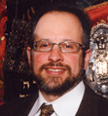 View current news articles, commentary, videos and more that have an impact on Jewish culture, politics and religion at Rabbi Silverman's Sites to See
View current news articles, commentary, videos and more that have an impact on Jewish culture, politics and religion at Rabbi Silverman's Sites to See
Between Purim and Passover
Rabbi Jason Rubenstein makes an interesting observation that the very beginning of the Megillah presents an anti-Passover message of providence. It appears that Haman rolls the dice in his lottery for the destruction of the Jews on the 12th month, Adar, and the 13th day. But on what day was the fate sealed? –On none other than the day before Pesach, Adar 14, when the Jews, instead, prevailed. And what does Mordecai tell Esther? He tells her, “Help might come from another quarter, but if you don't do something, you and your father's house will be destroyed.” Notice that he doesn’t say God will help us; he says something shall come to the rescue eventually (yavo memakom acher), but we are left wondering what form that help will take. After all, God is not mentioned in the Book of Esther at all. And Esther insists that the Jews fast for three days, but this comes at the time of feasting at the Seders of Passover! Note how despairing they must have been at this moment when they should have been fulfilling the commandment of eating matzah to celebrate God's rescue of the Hebrew Slaves at the time of the Exodus! In the end, religious significance is attached to this miracle rescue of the Jews from Haman, and it is declared a holiday, but the rite of that holiday is reading about human beings risking their lives to turn the tide.
Pesach enters, however, through the back door, in our rabbinic tradition, when it comes to the events of the story of Esther. Do you remember that Achashverosh couldn't sleep and insisted in reading from his chronicles? That occurred too, our sages tell us, on the exact night marking the time of our release in Egypt! (cf. Haggadah: cf. vayehi be chazi Halaila) This teaches that while you might think that all happens is due to luck, happenstance and human endeavor, we realize that Providence is behind this concatenation of events–ultimately God is working behind the scenes.
Passover presents a different theological view. God is a maker of miracles and will impose His will on human history if the experience of his people is dire and if their prayers and tears crack heaven. The explanation of our rescue and release comes from God and no other–a Divine rescue.
And yet, Passover depends, too, on the actions of people. It depends on a leader who evolves from a self doubting 'send someone else' sort, to a leader who won’t take ‘no’ for an answer. It depends on a people who evolve from insular, to advocates, to a people who begin to believe and inspire Moses. And it depends ultimately on their faith to follow God's directive to slaughter a ram at a time of Egyptian Ram worship, when Aries, the Ram, is considered sacred.
In a beautiful passage, God instructs Moses to put blood on the doorpost and the crossbeams of doors on the night of the last lethal first-born plague. But when Moses repeats this directive to the Israelites, he says the opposite, telling them to place the blood on the lintel and then the doorposts. Why the difference, asks the Nachalat Zvi commentary. The first passage shows God's perspective. From His perspective, His miracles are dependent on human actions below the heavens, which are stirred by what we do down here below. From Moses' perspective, miracles come from above, and from how much we turn our hearts and our prayers heavenward.
Naturally this Pesach-Purim divide is a much broader discussion and we see its tension in opinions this very day. There are many who feel that God is the one who makes or breaks circumstances; there is no coincidence and God has everything, always, under control–even if we don’t see it. There are others who say, "heaven helps only those who help themselves," and only pious fools place themselves in harm’s way by saying "God shall provide."
I suspect the truth is somewhere in the middle. Certainly, a little help from heaven is always a good thing, and sincere prayer is, therefore, called for and important. On the other hand, even God kept us out of the way of the Philistines until we were ready, as a people, to wage war, providing forty years for training before we were ready to conquer our land. In making peace, prayer alone is insufficient. Human might and resourcefulness is imperative, as is bravery and risk taking, in the road to redemption. In creating a strong and productive society, prayer is helpful but insufficient. We must fight for justice, we must risk for kindness, we must trust, to the extent that we can, in our neighbors, and extend our hands to them–only then can heavenly rewards rain down upon us.
Beth and I wish you and yours a sweet and joyful Pesach.
–Rabbi Ian
